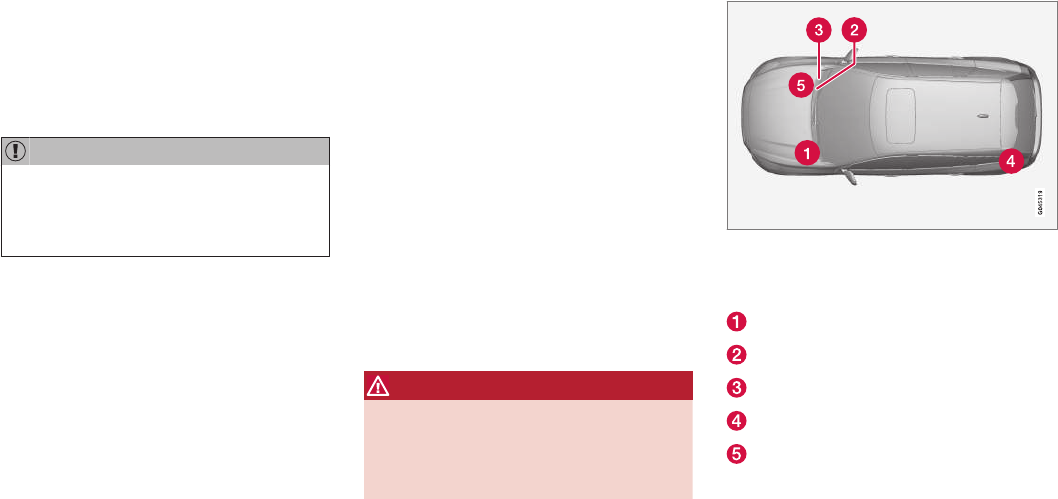MAINTENANCE AND SERVICE
}}
383
Electrical system
The electrical system is single-pole and uses the
chassis and engine casing as a conductor.
The car has a voltage-regulated AC alternator.
The size, type and performance of the starter bat-
tery depend on the car's equipment and function.
IMPORTANT
If the starter battery is replaced, make sure
you replace it with a battery with the same
cold starting capacity and type as the original
battery (see the label on the battery).
Related information
•
Starter battery - replacement (p. 379)
•
Starter battery - general (p. 377)
Fuses - general
All electrical functions and components are pro-
tected by a number of fuses in order to protect
the car's electrical system from damage by short
circuiting or overloading.
If an electrical component or function does not
work, it may be because the component's fuse
was temporarily overloaded and failed. If the
same fuse fails repeatedly then there is a fault in
the circuit. Volvo recommends that you visit an
authorised Volvo workshop for checking.
Changing
1. Look in the fuse diagram to locate the fuse.
2. Pull out the fuse and check from the side to
see whether the curved wire has blown.
3. If this is the case, replace it with a new fuse
of the same colour and amperage.
WARNING
Never use a foreign object or a fuse with an
amperage higher than that specified when
replacing a fuse. This could cause significant
damage to the electrical system and possibly
lead to fire.
Location of central electrical units
Central electrical unit locations in a left-hand
drive car. In a right-hand drive car the central
electrical units under the glovebox change sides.
Engine compartment
Under the glovebox
Under the glovebox
Cargo area under the cargo floor
Engine compartment cold zone (only Start/
Stop)
Related information
•
Fuses - in engine compartment (p. 385)
•
Fuses - under glovebox (p. 389)
•
Fuses - in the control module under the glo-
vebox (p. 391)

